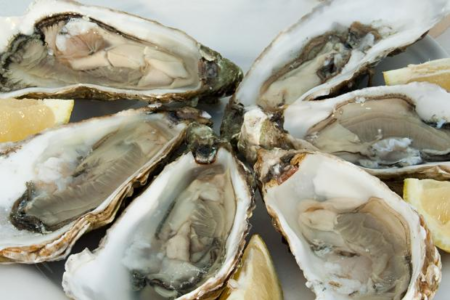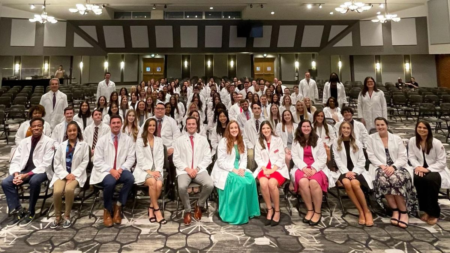16 ways to sleep, pharmacist romance, you really WILL go blind, and more
08 Apr 2022
Posted by Andrew Kantor
It already tastes like medicine
You might think that licorice has no real use other than as a Halloween punishment for trick-or-treating hooligans. But that might not be the case.
A chemical found in the licorice plant, glycyrrhizin (also a winning Scrabble word), might have anti-inflammatory and anti-cancer properties — at least according to researchers at the University of Illinois. It’s not out of thin air; the idea is based on their review of existing, if sparse, research into glycyrrhizin.
Their paper also tied for 3rd place in the 2022 Most Science-y Title contest: “Oncopreventive and oncotherapeutic potential of licorice triterpenoid compound glycyrrhizin and its derivatives: Molecular insights.”
We would never make a joke about going blind
… but we will point out that a large study out of Canada found this:
The risk of developing one of three serious eye conditions increases by 85 per cent for regular users of common erectile dysfunction (ED) medications such as Viagra, Cialis, Levitra. and Stendra.
16 shades of sleepiness
A patient comes to you with trouble sleeping. Maybe you say “Benadryl, second aisle on the left,” or maybe you dig a bit deeper — find out what kind of sleeper they are. In fact, you might think there are two categories: night owls and morning people.
In fact, there are as many as 16 distinct types of sleepers/sleeping — at least, if you believe the Japanese biologists who studied the data of more than 130,000 people.
Those types are based on how long you sleep, how long you’re awake, what the sleep/wake pattern is, and more, and include “2b. Fragmented sleep with short sleep duration” and “4b-5. Insomnia with normal sleep duration and long-term midawake with less fragmented sleep.” There’s even a category for the worst people of all: “4b-2. Morning person.”

More insomnia woes
Insomnia doesn’t just make you grouchy. Apparently it raises your blood sugar levels and increases your risk of diabetes. So report a team of (mostly) British researchers in the American Diabetes Association’s journal Diabetes Care.
“We know from past research that there’s a link between sleep and a person’s risk of type 2 diabetes, but it hasn’t been clear which comes first, bad sleep or higher blood sugars, or if other factors are at play.”
(Yet another reason to get your sleep. In February we reported that insomnia increases your risk for flu and Covid-19, too.)
Out, damned DOX!
The obvious downside to chemotherapy is that the drugs are so darned strong, they Hulk-smash their way through healthy and cancerous cells alike.
One way around the issue involves better targeting of the drugs. But there’s a concurrent option: keeping those drugs from staying in the body longer than they need to.
Engineers at the Medical University of South Carolina have “developed a device to remove excess chemotherapeutic drugs from circulation after cancer treatment.” They focused on doxorubicin for now, and were able to remove 30 percent of it in about an hour.
DOX is sent into the body by encasing it in heat-sensitive nanoparticles. Heating the tumor causes the particles to break down and release their payload there. Problem: Eventually, the rest of the nanoparticles dissolve in the body and dump the DOX willy-nilly.
The MUSC team’s system takes advantage of that heat sensitivity by taking the patient’s blood, heating it to release the meds, filtering them out, and returning the blood — like an artificial kidney just for DOX.
Reducing the exposure of patients to leftover chemotherapy drugs could allow them to recover faster, with fewer side effects. It could also enable them to receive more chemotherapy cycles in the future in case additional treatment is necessary to kill the cancer cells.
Kids today, cardiovascular patients tomorrow
Just a handful of factors in kids is all it takes to predict their chances of having serious cardiovascular issues down the road.
Keep an eye on these five things, say an international group of researchers (led by the University of Minnesota Medical School): high BMI, high blood pressure, high cholesterol, high triglycerides, and youth smoking.
Those with the most boxes ticked can have up to nine times (nine times!) the risk for stroke, heart attack, or death, from as early as 40 years of age.
Congrats to UGA College of Pharmacy’s Class of 2023!
Here they are, looking so fresh — wide-eyed and naïve — at their pinning ceremony on April 1. Make a toast, if you would, to their last shred of innocence before venturing out into the cruel, cruel world.
Why you pharm
What’s the real reason you spent all those years in school — and (for many of you) took on all that debt? Sure, the official line is “Because I love chemistry and want to help people be healthy,” but a pair of psychology researchers (one Italian, one British) have unearthed the truth:
In every nation, a person’s resource-acquisition ability was positively associated with the amount of attention they received from other [online dating] site members.
Money quote, soon to be on a dishtowel: “Mating mistakes have both reproductive and psychosocial outcomes.”
Side note: Oyster contamination
If you know anyone who, for reasons I cannot fathom, eats oysters — well, tell them to avoid any from British Columbia. The FDA is warning about contamination with norovirus in oysters shipped all over the country. (Georgia isn’t listed as a destination, but Florida is, and “It is possible that additional states received these oysters through further distribution.”)
How can you tell they’re from BC? Consumers probably can’t, so maybe just avoid oysters for a while.

Shouldn’t be too hard.
g



